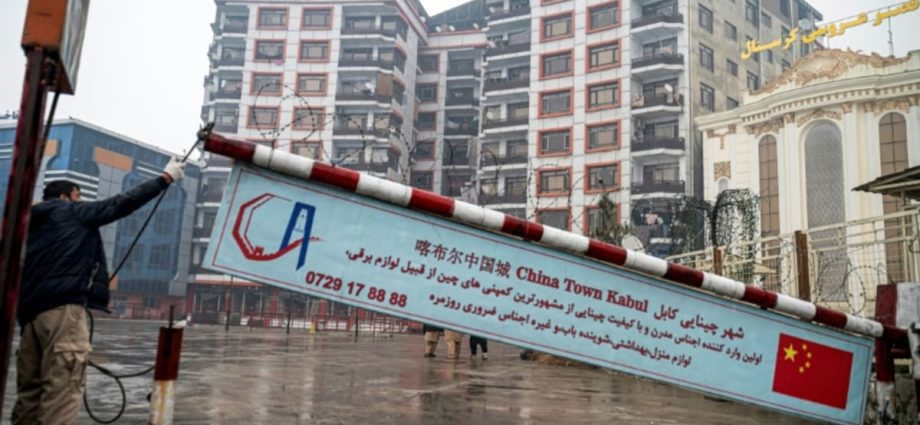
NATURAL RESOURCES
The prize in all this is access to Afghanistan’s wealth of untapped mineral resources – as well as a market for Chinese goods.
“The vast natural resources of Afghanistan, such as copper, lithium, or rare earths, have significant economic potential for China,” said Jalal Bazwan, assistant professor of political science at Kardan University in Kabul.
Immediately after his installation in December as Afghanistan’s ambassador to Beijing, Bilal Karimi held discussions with the Chinese state-owned company MCC on Mes Aynak, the world’s second-largest copper deposit, some 40 kilometres (25 miles) from the capital Kabul.
MCC obtained exploitation rights in 2008 – worth about US$3.5 billion – but the project was paralysed by war and insecurity.
The discovery of Buddhist archaeological remains at the site further complicated development.
“These historical assets are a cultural treasure for Afghanistan, part of its identity,” says Hamayoon Afghan, spokesman for the ministry of mines – an about-face from the Taliban’s previous incarnation, which 23 years ago stunned the world by destroying the Bamiyan Buddhas, deeming them un-Islamic.
Thirsty for hydrocarbons, China is also interested in the potential of Afghan oil.
Since the renegotiation in January 2023 of an old contract in the northwestern Amu Basin, Sino-Afghan extraction has begun in 18 wells, says the mines ministry.
Afghan authorities have also announced plans by Chinese companies to invest half a billion dollars in solar energy in the country.
NEW SILK ROAD
A 300km road under construction will connect Badakhshan to the Chinese border, according to Ashraf Haqshanas, spokesman for the ministry of public works.
The two countries share a border just 76km long, but this new link will significantly boost trade, currently a modest US$1.5 billion per year.
Despite its largesse, the security of its investments remains crucial for China.
A deadly Islamic State group attack in December 2022 on a Kabul hotel housing Chinese nationals group shocked Beijing, which urged Taliban authorities to improve security.
During the Taliban’s first stint in power from 1996-2001, they hosted hundreds of Uyghur militants from China – the United States detained 22 of them for years in Guantanamo Bay – and Beijing is wary of any new threat from the group.
“In 2021, there were reports of Uyghur militants being forcefully evacuated from border regions near China-Afghanistan,” said Bazwan.
“The Taliban have assured China that they will prevent Afghan soil from being used for terrorist attacks against its neighbours,” he added, although neighbour Pakistan insists Kabul has not kept its promises on this.
As part of its rapprochement, Beijing is also exercising its “soft power” by delivering humanitarian aid – in particular following recent deadly earthquakes.
In Kabul, there is even a modest “Chinatown” – two eight-story buildings where cheap Chinese products are sold.
“Belt and Road” is written in red Chinese calligraphy at the top of the building, referring to the massive infrastructure project linking China to Central Asia and the rest of the world.
Afghanistan could also be integrated into the China-Pakistan Economic Corridor – the cornerstone of the project – leading to the port of Gwadar, a strategic outlet for China on the Arabian Sea in Pakistan’s south.
“The strategic position of Afghanistan along the Belt and Road initiative makes it an attractive partner,” said Bazwan.

